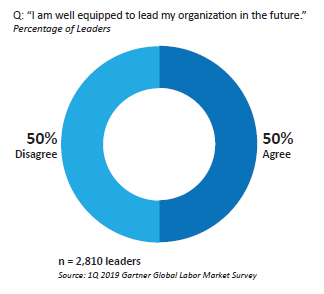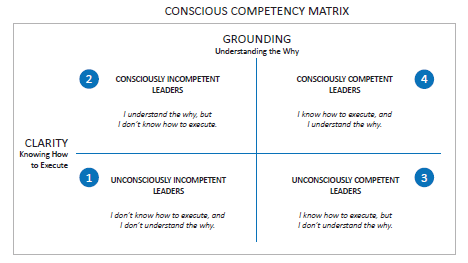Is There a Crisis of Leadership?
Developing Well-Equipped Leaders (July 29, 2020)

“A typical crisis plays out . . .”

Crises are not new to our world, to our countries, or to our organizations. Real-world crises produce rapidly changing conditions and upheavals that leaders need to respond to, recover from, and thrive in for future organizational success.
An unsettling statistic from Gartner’s early 2019 survey reveals that half of organizational leaders say they aren’t well equipped to lead their organizations in the future. Put another way, with the future certain to hold some kind of change or tumult, 50% of leaders feel ill equipped to handle it.
Are we facing a situation in which we have a critical mass of current and next-generation leaders who are not well equipped to lead organizations in the future? If that is true, might the next crisis we face be a crisis of leadership?
This prompts the question:
What qualifies as a leader who is well equipped for an uncertain future?

Consciously Competent Leaders
At Wilson Learning, our view of a well-equipped leader is someone who possesses both clarity (the “know how to” of essential leadership skills) and grounding (the “know why” of the skills’ importance and impact). Those well equipped with clarity and grounding are leaders who are Consciously Competent—they are good leaders, and they understand what makes them good leaders.

As conditions change, consciously competent leaders have the ability to assess the situation and adjust or adapt as needed. This heightened leadership agility and flexibility to respond to change is urgently needed in today’s environment when priorities shift and organizations must pivot to respond and recover.
Unfortunately, most leadership development efforts are geared to develop leaders only to level 3; Unconscious Competence. That is, there is a focus on teaching new leaders the skills necessary for effective leadership (clarity), but not taking that next step to ensure grounding, appreciating the “why” of leadership. As a result, leaders are effective when conditions are normal, but when there are major disruptions or crises, these leaders fail to adapt.
What is needed are new approaches to leadership development that focus on the “what” and the “why” of leadership.
Essential Leadership Capabilities
Ultimately, preparing leaders for the uncertain and ever-changing world requires development of both Leadership Character and Essential Leadership Skills.
Developing Leadership Character
Great execution of leadership skills rings hollow to both the employee and the leader if leadership character development is overlooked.
Recent research shows that high-performing organizations focus their development of leadership character on elements like integrity, empowerment of others, nurturing others’ growth and development, and empathy. These take on even greater importance when leaders are now tasked to thrive in disruption and an uncertain future.
Essential Leadership Skills
What are the leadership skills needed today for those leading forward from a new place?
Foundational leadership skills, such as coaching others, communication skills, and performance management, need to be executed in the context of current and future remote work environments. For some leaders who traditionally manage their talent with face-to-face access, these foundational skills may need refashioning to be most effectively executed. People skills, like influencing and motivating others, are a priority as the landscape of work evolves.>
If 50% of leaders say they are well equipped to lead the organization in the future, what about the other 50%? Where do your leaders land on the “Clarity” and “Grounding” axes?
Are you providing them the extra help needed to support their growth and development to become Consciously Competent leaders, well equipped to lead your organization in the future with both strong skills and leadership character?
To learn more about how to advance leadership character throughout your organization, contact Wilson Learning.








 Please complete this form to agree to receive ongoing information via email from Wilson Learning.
Please complete this form to agree to receive ongoing information via email from Wilson Learning.





